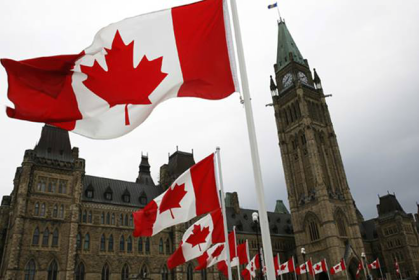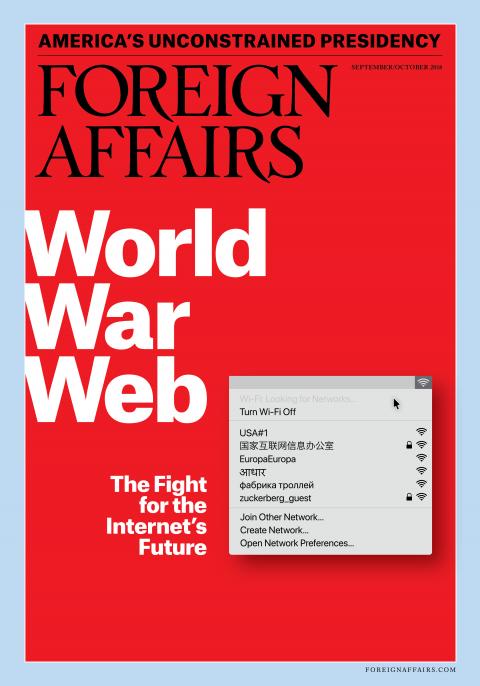A futuristic agenda for India & Canada
India can draw Canada in a new direction – away from its trans-Atlantic fixation, into the Indo-Pacific and a tech and resources partnership that will benefit both democracies
 Courtesy: Financial Express
Courtesy: Financial Express
India can draw Canada in a new direction – away from its trans-Atlantic fixation, into the Indo-Pacific and a tech and resources partnership that will benefit both democracies
 Courtesy: Foreign Affairs
Courtesy: Foreign Affairs
The immediate threat is more corrosive than explosive. States are using the tools of cyberwarfare to undermine the very foundation of the Internet: trust. The result is that an arena that the world relies on for economic and informational exchange has turned into an active battlefield.
 Courtesy: National Museum of the U.S. Air Force
Courtesy: National Museum of the U.S. Air Force
Washington is planning to integrate its military space operations. Each arm of the United States Armed Forces has had a space command until now but uniting these discrete units into a new Space Force is a step ahead. The U.S.’ big-picture ambition is ‘full spectrum battle-space dominance’ and the contest to achieve it has implications for the defence and space industry
 Courtesy: Caixin Global
Courtesy: Caixin Global
China’s foreign direct investment is shifting away from natural resources to high-tech areas, such as Artificial Intelligence and robotics. The scale of these acquisitions, along with questions about intellectual property and national security, are causing widespread concern in the West
 Courtesy: Wikipedia
Courtesy: Wikipedia
India is missing from the new wave of industrialisation that the space powers – both well-established and new – are ushering in. New Delhi must use the Indian Space Research Organisation smartly to create a competitive industrial base of avant-garde technologies, not regard it a mere revenue generator
 Courtesy: Flickr
Courtesy: Flickr
Indian companies are uniquely positioned to help trim costs and minimise inefficiencies in the currently oversized U.S. healthcare system. The pharmaceutical, medical technology and health IT segments offer scope for a range of interventions that could be mutually beneficial
 Courtesy: Wikipedia
Courtesy: Wikipedia
Popular analysis of the sale of Yahoo's online business to Verizon dwells on the company’s missteps, missing out the enormous, long term success that it is.
 Courtesy: ustr.gov
Courtesy: ustr.gov
The Trans-Pacific Partnership has dropped strong Intellectual Property Rights regulations on India’s doorstep. The implications of these regulations could affect India’s own policies, as well as her global aspirations towards the potential Regional Comprehensive Economic Partnership.
 Courtesy: Wikipedia
Courtesy: Wikipedia
The recent U.S. and China agreement to contain cyber espionage will not only impact their bilateral relationship, it will also create norms in international cyberspace. But implementation remains a challenge, and businesses, including in India, that have faced cyber threats must proactively plug their vulnerabilities
Sharad Sharma, co-founder, iSpirt, talks about Prime Minister Modi’s visit to the Silicon Valley on September 27. In an in interview to Gateway House, he outlines the steps that would make Modi’s visit a success for Digital India campaign and other key issues.